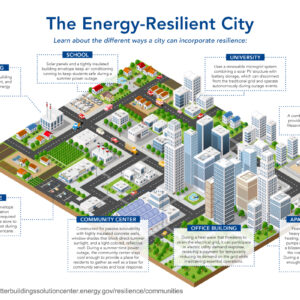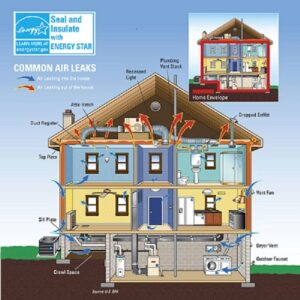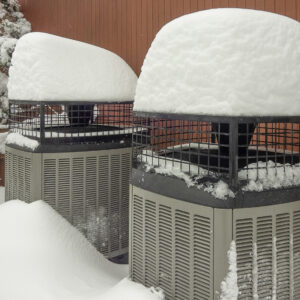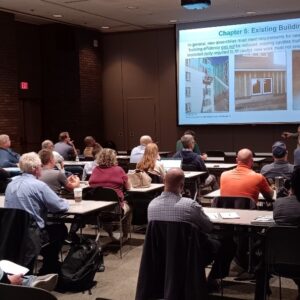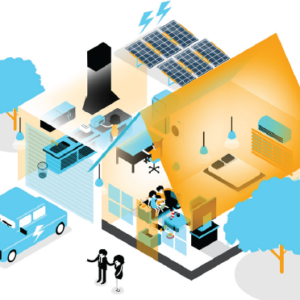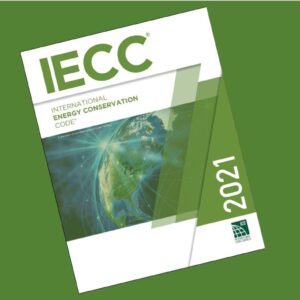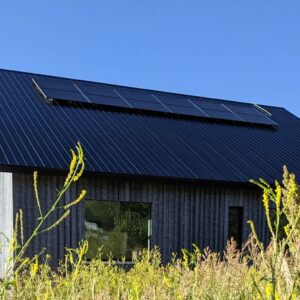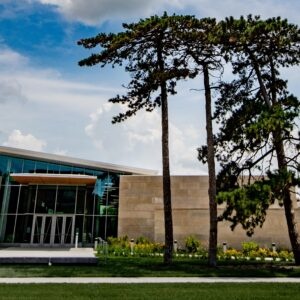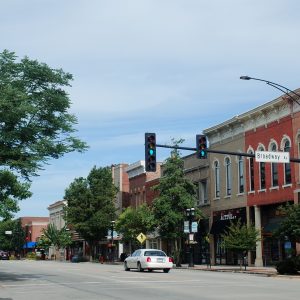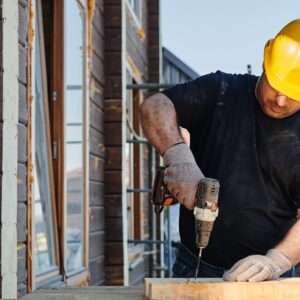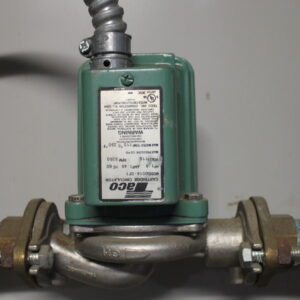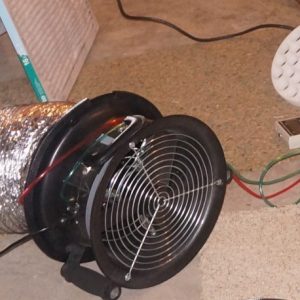SEDAC's Energy Code Smart Tips
Energy Codes & Energy Resilience
Energy codes dictate building performance related to energy use and conservation through design, materials,and methods of construction. The codes provide […]
Build Tight, Ventilate Right
“Build tight, ventilate right” is an often-repeated motto of those who consider energy efficiency and comfort as critical to the […]
Cold Climate Heat Pumps Work!
Heat pump technology is far from new. The concept was first developed in the mid to late 1800’s and has […]
2021 IECC: Code Basics and Simplifying Code Compliance Workshop
SEDAC Energy Code trainers Shawn Maurer and Ryan Siegel traveled to Springfield on October 17, 2023 to present an energy […]
Building Electrification
Building electrification describes the shift to using electricity rather than burning fossil fuels like oil, gas, and coal for heating […]
Illinois Stretch Energy Code
On September 15, 2021, Governor Pritzker signed Senate Bill 2408, enacting the Illinois Energy Transition Act (formerly known as the […]
2021 IECC Significant Changes
Updates to the International Energy Conservation Code (2018 to 2021) aim to improve building energy efficiency and reduce greenhouse gases. […]
Zero Code
In 2018, the non-profit organization Architecture 2030 created the Zero Code with the goal of reducing overall building sector emissions […]
Passive House
Do you know Passive House certified homes use about 90% less energy than the average home? Passive House building standards […]
Energy Code Benefits for Architects & Engineers
Energy codes provide an opportunity for architects and engineers to serve the public good by creating buildings with low environmental […]
Energy Code Benefits for Homeowners and Realtors
For over 25 years, building energy codes have played a significant role in saving American homeowners money on utilities while […]
Energy Code Benefits for Communities
How do energy codes benefit communities? Energy codes lower utility costs, increase resilience to climate events, reduce pollution, place less […]
Energy Code Benefits for Contractors
A common myth is that energy codes are bad for the construction industry. In fact, energy codes have many benefits […]
Manual J Load Sizing
Check out SEDAC's Energy Code Smart Tip on Manual J Load Sizing. Learn about why modern buildings need Manual J […]
Domestic Hot Water Recirculation
Can Domestic Hot Water Recirculation Systems Conserve Energy? The US Department of Energy estimates that more than 400 billion gallons […]
Below-grade Insulation
Check out our new Energy Code Smart Tip for below-grade insulation! What insulation is required for below-grade walls? On the […]
Slab Insulation
Slabs can be big culprits for energy loss from heat that is conducted outward and through the perimeter of the […]
Energy Rating Index
Newly constructed residential buildings in Illinois have three paths for compliance. This energy code smart tip explores the basics of […]
How COVID-19 is Affecting Code Officials
How is the COVID-19 pandemic impacting the work that code officials do? Will the pandemic impact compliance with the Energy […]
Duct Leakage Testing
Duct leakage testing helps to make sure that ducts are properly sealed to create an energy efficient, comfortable, and healthy […]


